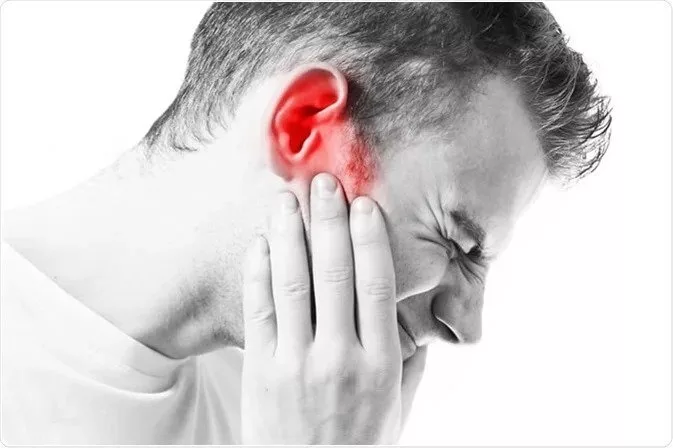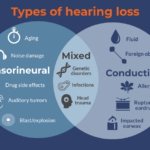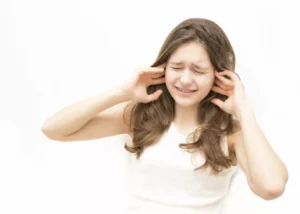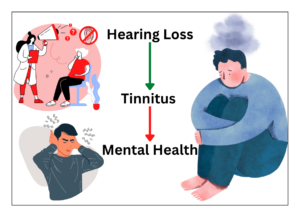
Tinnitus is a medical condition characterized by the perception of sound in the absence of an external source. The sounds associated with tinnitus can be varied and range from ringing, buzzing, hissing, humming, and clicking, to more complex sounds such as music or white noise. Tinnitus can have a significant impact on a person’s life, as it can cause difficulty with hearing, concentration, and sleep, and can also lead to feelings of anxiety and depression.
One study published in 2018 found that the most commonly reported tinnitus sounds were ringing (65%), followed by buzzing (22%), and hissing (6%). Other sounds that have been reported include clicking, whistling, and chirping.
Tinnitus can have a number of different causes, including exposure to loud noise, ear or head injuries, certain medications, and underlying health conditions such as high blood pressure or diabetes. It can also be a symptom of hearing loss.
The impact of tinnitus on a person’s life can vary depending on the severity of the condition and the individual’s coping mechanisms. Some people may find that their tinnitus is only a minor annoyance, while for others it can be a debilitating condition that interferes with daily activities.
In conclusion, tinnitus is a medical condition that is characterized by the perception of sound in the absence of an external source. It can be caused by a variety of factors and can have a range of different sounds, including ringing, buzzing, and hissing. The impact of tinnitus on a person’s life can vary depending on the severity of the condition and the individual’s coping mechanisms.
References:
· “Tinnitus: Causes, symptoms, and treatments.” Mayo Clinic. Last reviewed: August 7, 2019. Tinnitus – Symptoms and causes
· Henry, J. A., Zaugg, T. L., Schechter, M. A., & Myers, P. J. (2018). Prevalence and characteristics of tinnitus in US adults. American Journal of Audiology, 27(2), 153-160. https://www.ncbi.nlm.nih.gov/pmc/articles/PMC5871013/






